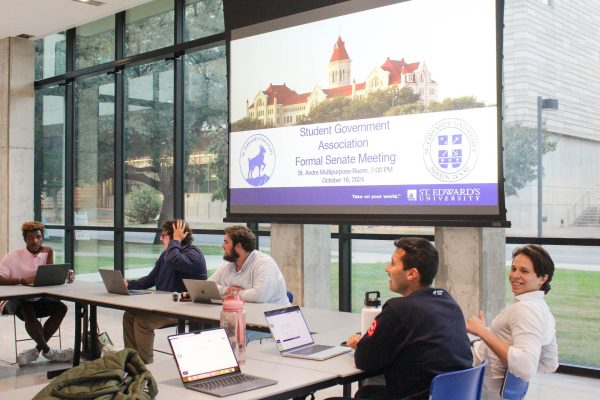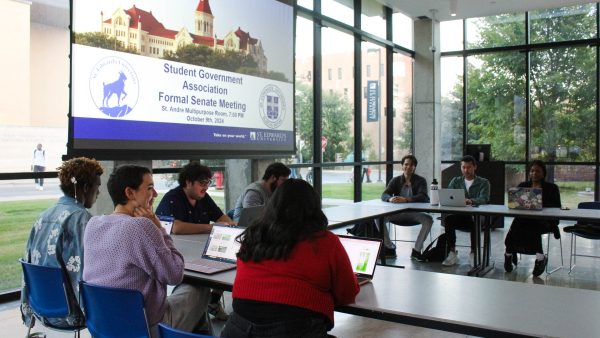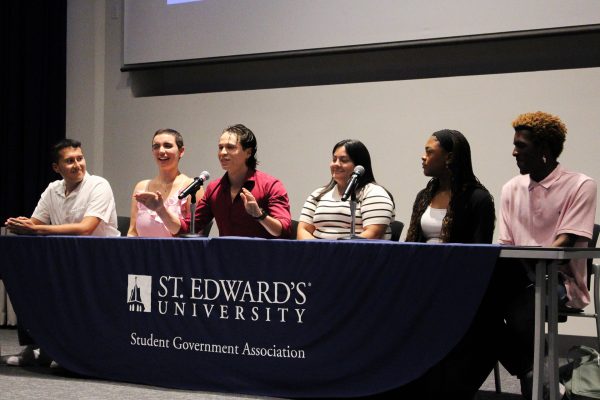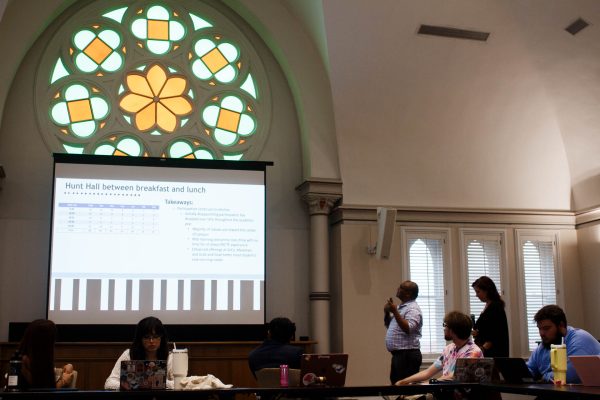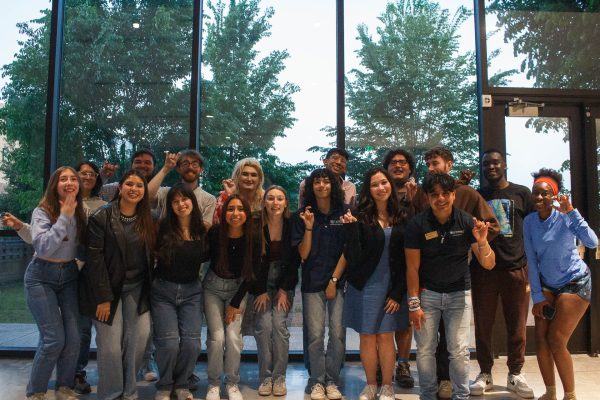SGA candidates debate, showcase their platforms
The theme of the Student Government Association’s debate Monday night was admitting there is a gap between members and the student population. Both presidential candidates agreed.
“There is clearly a disconnect,” said presidential candidate and current Vice President Carlos Martinez. “I don’t think the student body is as invested in student government as we would like.”
Martinez is running with Sen. Cameron Galvan on a platform of “reliable experience,” a reference to their involvement in SGA together over the course of this academic year.
The other ticket is also involved in SGA, in roles outside of the senate.
“I think for both Amanda [vice presidential candidate] and I, it’s realizing that SGA has failed at serving the student body,” said internal affairs director and presidential candidate Ben Griffith. “That’s why our goals are so broad, we can’t limit ourselves to specific ideas or goals.”
Besides concerns about reaching the student body, both tickets addressed the accountability of the senate and by extension, the association.
Part of Griffith’s and vice-presidential candidate Amanda Rodriguez’s platform, calls on senators to pass a minimum of six pieces of legislation over the course of the year.
“SGA is a crutch and not a tool,” Griffith said. “What I mean by that is SGA needs to be a vehicle of student concern, not just generating ideas for students.”
Extending on the campaign slogan of experience, student questioned Martinez what his legacy was and how he applied the four pillars of accessibility, safety, accountability and sustainability, that he and President Jamie Cardenas ran on last year.
Sustainability has carried on to the Matinez-Galvan vision. As for progress on the pillars this year, Martinez mentioned that University President George E. Martin has addressed students and collaboration with campus safety to create a safety app. The Green Fund referendum, on last year’s ballot, is in the works, awaiting a response on Human Resources Vice President Kim Van Savage, Martinez said.
Rodriguez incorporated her role of organizing monthly service projects into the platform by requiring senators to partake in service each semester. The ticket also calls for SGA to hold office hours in Jo’s, as well as outreach to presidents of student organizations on campus.
“Leading SGA takes more than experience,” Rodriguez said. “It takes different parts of campus and different experiences to create a wholesome leadership philosophy. What we can bring is a different approach, we have new ideas.”
Two referendums authored by current senators will also be on the ballot.
Sen. Miguel Escoto has made it the focus of his campaign to continue a cost-benefit analysis for adding solar panels on the top of the Munday Library, though student questions addressed upkeep and replacement of the panels, as well as if they were affordable.
The other referendum asks whether students believe that the current pay rate is sufficient or not. The pay rate currently stands at 10 percent above the state minimum wage, which is $7.25 per hour. “Seeing that the current rate of living in Austin has increased in the past couple of years, I think it’s only fair to say that our administration and SGA works to revise the current student pay,” Sen. Jovahana Avila said. “I’m not sure exactly how much I could raise the student pay, but it doesn’t hurt to give it a try. Even though I’m not going to be running next year as a senator, this is still something that I’ll be pretty vigilant about in the coming years.”
There are 13 students running for 12 senate seats, and of those, four are veteran SGA members.
Polls for the referendums and candidates close Friday at 4 p.m.







